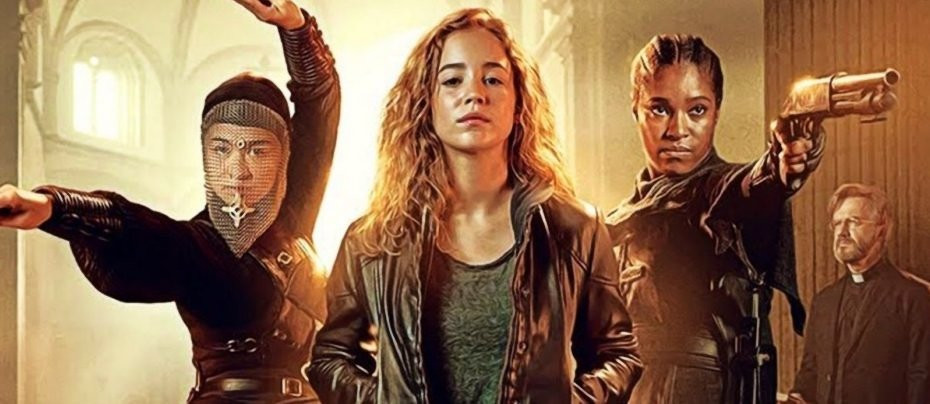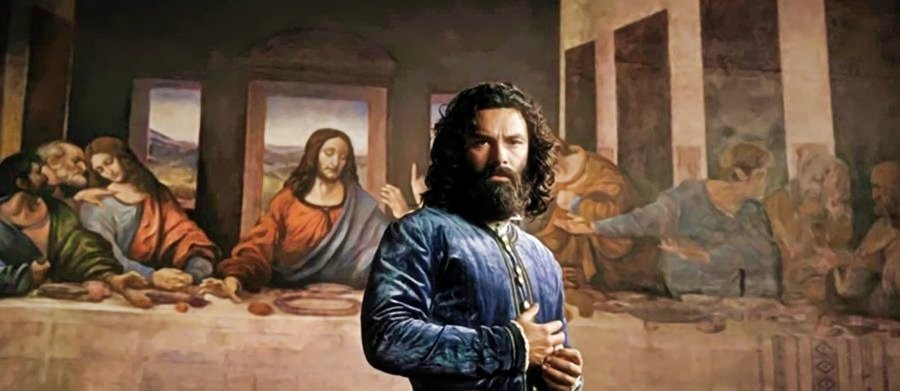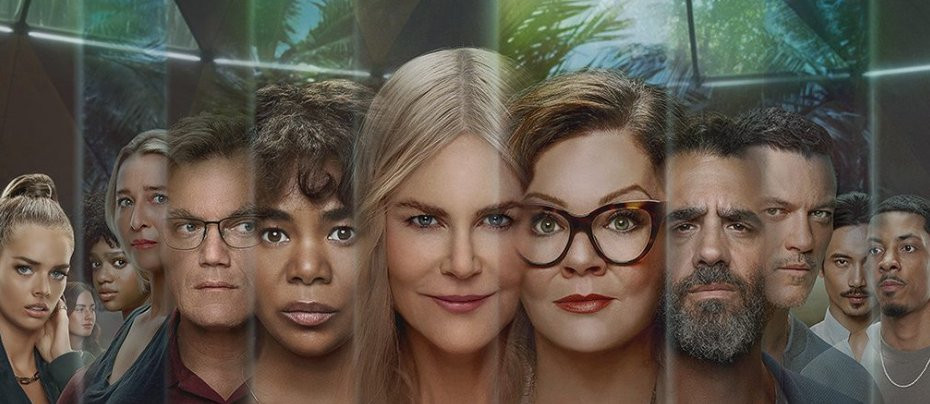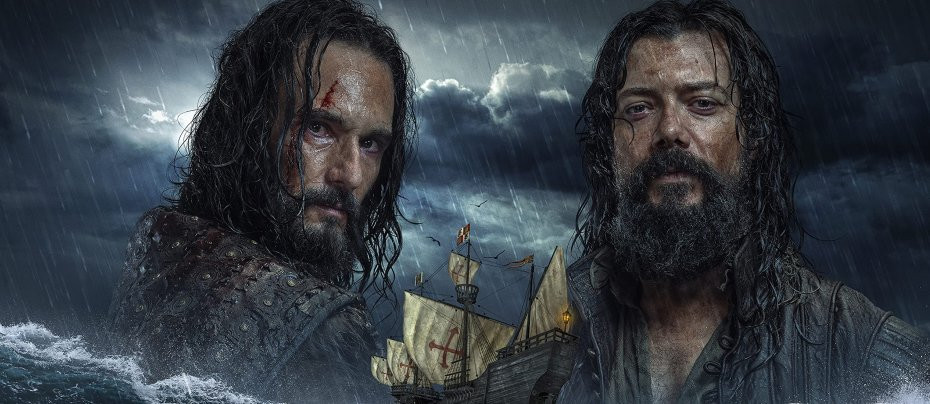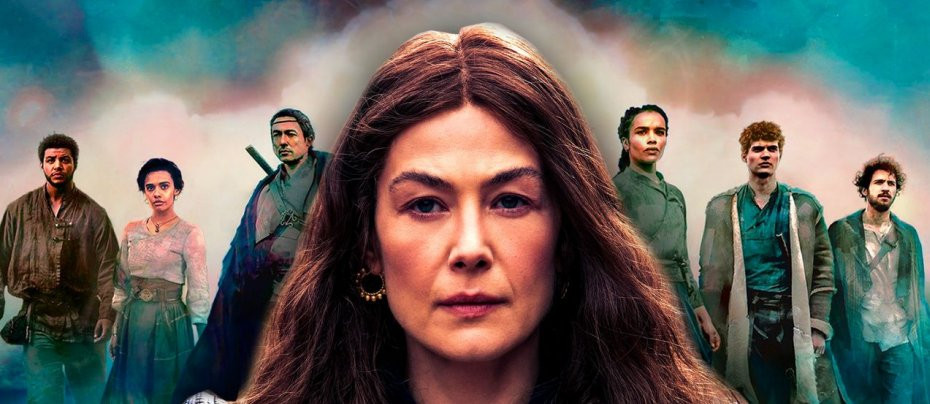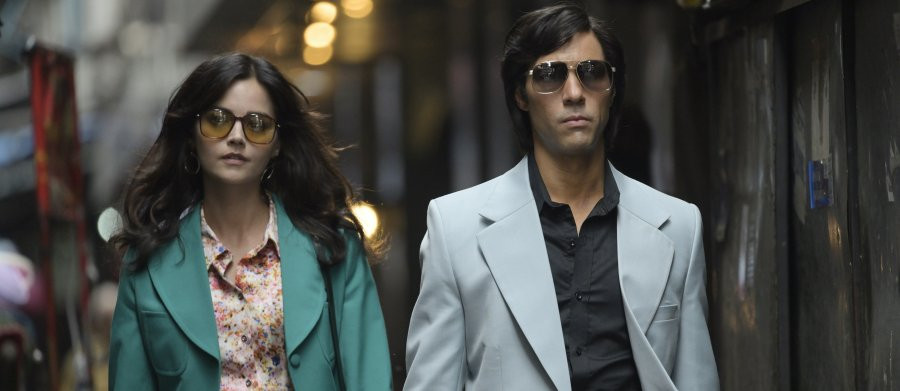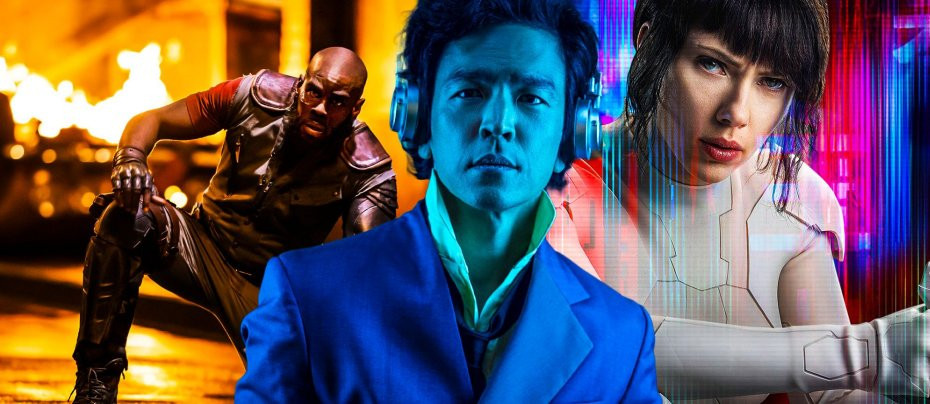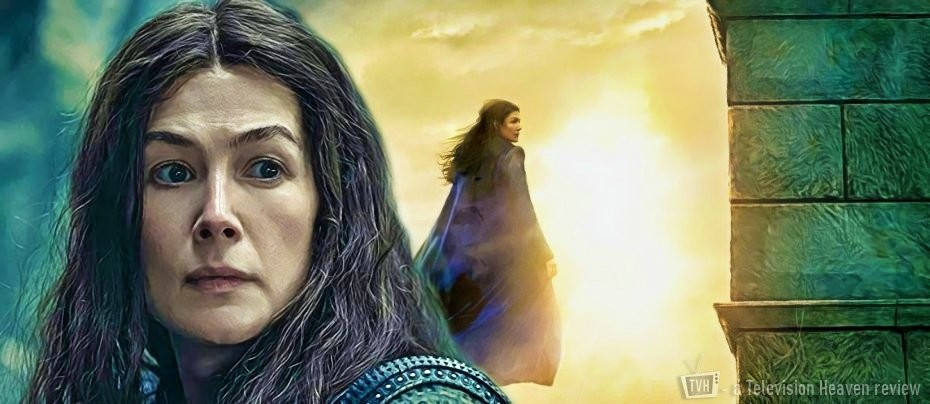
The Wheel of Time
2021 - United StatesIn the race to produce the next Game of Thrones, Netflix was first off the mark with The Witcher. Amazon pursued a different strategy, taking its time and investing huge sums in developing better known and more prestigious intellectual properties, Robert Jordan's The Wheel of Time cycle of fantasy novels and a "prequel" to the grandfather of them all, J R R Tolkien's The Lord of the Rings.
Tolkien spawned a host of imitators, David Eddings and Terry Brooks being among the more commercially successful. Jordan and his friend George R R Martin, who wrote A Song of Ice and Fire, the basis of Game of Thrones, represented a generational shift to a more realistic style of "big map fantasy." Jordan, like Tolkien, but unlike many other fantasy writers, a very intelligent and well-read man with broad life experience, had polished his craft writing sequels to Robert E Howard's 'Conan' novels (it is perhaps surprising that the highbrow academic Tolkien was familiar with Howard's so-called "pulp" fantasy and thought well of it). So when he came to write his own Tolkienesque cycle of novels, The Wheel of Time, he brought a grittier, edgier Conanesque tone to it.
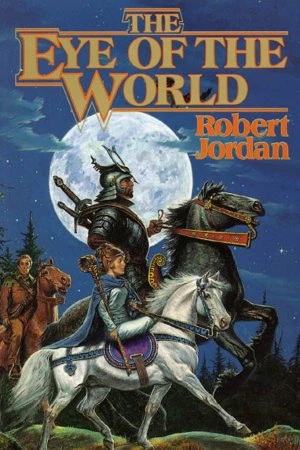
This, and Jordan's association with Martin, should make The Wheel of Time the natural successor to Game of Thrones. However, while the latter was produced by HBO, which has cultivated a very "adult" image, The Wheel of Time is very much a product of Amazon's more "family friendly" sensibility. It has an obsession with sex that is almost entirely absent in Tolkien, but the sex is referenced more than shown and even when shown it is not explicit. Nor is the violence as gory as Game of Thrones or the language as foul. It seems to be pitched right in the middle between the Lord of the Rings films and the Game of Thrones television series in its tone.
It is therefore in danger of being neither one thing nor the other. It is not the High Fantasy of Tolkien, Eddings, and Brooks, or grimy pseudo-historical fiction with touches of fantasy, which is what Martin's A Song of Ice and Fire really is. This is a spoiler light overview of its first season.
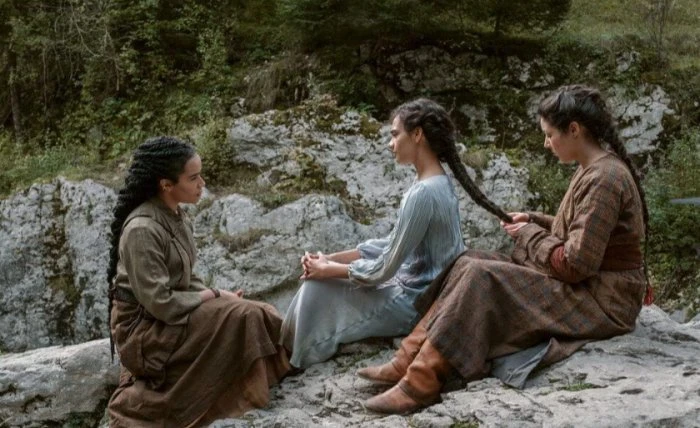
It gets off to a very poor start. The now very stereotypical ultra-strong women, happy multi-ethnic peasants blissfully unaware that they are about to be attacked, pretty scenery, and good looking young people give it the feel of a minor "Sword and Sorcery" feature from the 1980s, or perhaps a cheap Hercules the Legendary Journeys or Xena Warrior Princess knock off from the late 1990s.

Stick with it, however. It does get better, especially when the unfortunately named "Trollocs" turn up. They are genuinely frightening, a combination of Sir Peter Jackson's orcs with traditional representations of horned demons, except big and fast. Animalistic carnivores, they are directed by the even more nightmarish "Fades," ghouls right out of Hieronymus Bosch, practically faceless but for their huge teeth. They are, and remain, formidable adversaries.
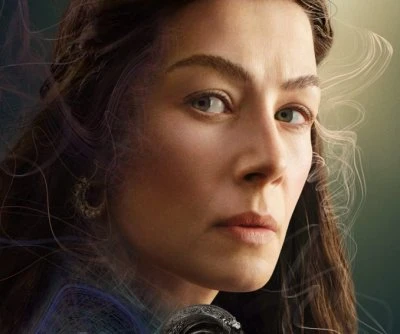
Happily, our principal protagonist is there to show what she can do, and a superb night battle literally lights up the hitherto dull opening episode. Apart from anything else, it is a good to see a fight that really does look as if it could go either way. Moiraine is a powerful magician but by no means invincible or invulnerable. There is nothing superhuman about her in spite of her impressive introduction. Indeed, the more we get to know Moiraine, the more human she becomes, thanks to a subtle yet commanding performance from Rosamund Pike. She is definitely the best thing in the show, and it is a pleasant change to see a woman in the prime of life, neither a young sex object with unlikely wisdom beyond her years nor an older woman playing basically a character role, as the lead in a major action show. No one thinks twice about men in their forties playing age appropriate leader types, but actresses tend to disappear into a mid career trench. The talented Pike, so brilliant in Gone Girl among many other projects, paints a realistic portrait of a female authority figure in early middle age - it seems ironic that it takes a fantasy drama to provide one.
Moiraine has great natural presence of the type that can silence a room just by walking in, but beneath the calm exterior is a complex woman. She can be hurt and exhausted. The certainty she projects on the surface is not a reflection of what she really feels. She does not know everything about what is going on and that worries her. She is a loner within an organisation that emphasises sisterhood, an individualist sworn to obedience. More characters like this, please.
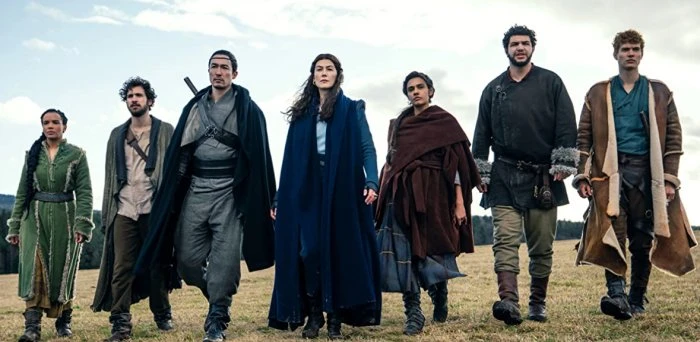
Although she is very powerful, her power does not rely on physical strength. This is a relief: the woman warrior superior to any man in battle, once a clever reversal of expectations, is now an overused cliché. For physical protection, she relies on her Warder, Lan (Daniel Henney), a taciturn samurai bound to her by the tightest possible psychic bonds.
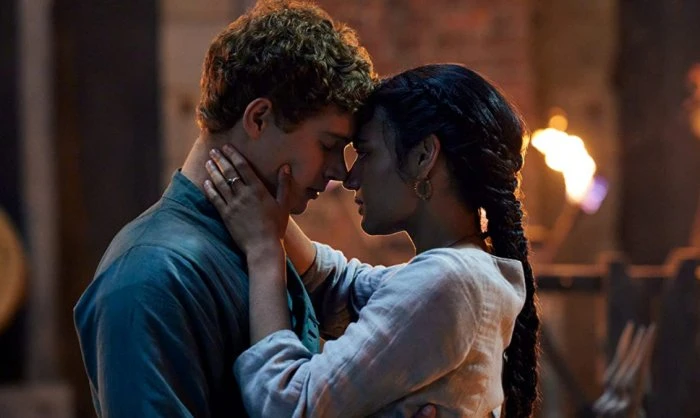
The younger characters, to whom most viewers would usually be expected to relate in projects like this, are far less interesting. There is the young village "Wisdom," or healer, Nynaeve (Zoë Robins) and four apparently ordinary youngsters, one of whom is the "Dragon Reborn," a Messianic figure who might equally end up a sort of Anti-Christ if he turns to the Dark. The script makes a half-hearted effort to keep us guessing which, even if it is pretty obvious. Is it the handsome farmer's son Rand (Josha Stradowski)? Or the would-be apprentice healer Egwene (Madeleine Madden)? Or the blacksmith Perrin (Marcus Rutherford)? Or the gambler and petty criminal Mat (Barney Harris)? Do we really care?

The juvenile characters were aged slightly from the books in the casting because the producers did not want to be associated with the "young adult" market - in spite of the fact that teenagers are often played by actors in their twenties in such projects. As a result, the four possible Dragons come across as slightly immature for their supposed ages: they look like adults but still talk and act more like children. At the time of writing it has been announced that Harris has been replaced as Mat in the upcoming second season: no reason has been given, but it is surely not his acting because, of the four, he gives by far the most engaging performance.
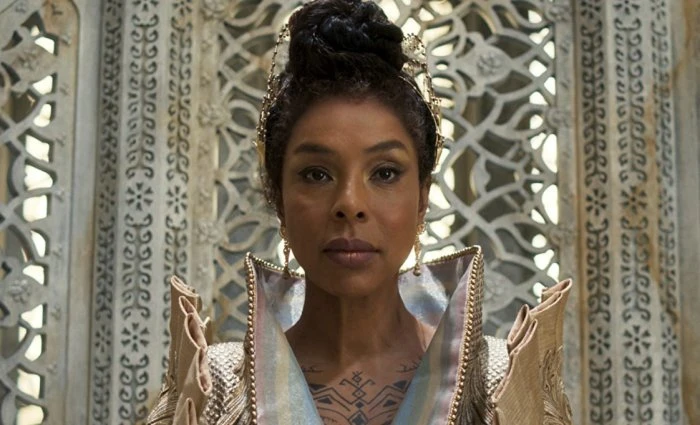
There are a number of familiar faces in the supporting cast: Michael McElhatton from Game of Thrones makes the most of the chance to play a nice guy, Rand's father; Clare Perkins from The Outlaws is a sensible member of the highly politicised order of dedicated women to which Moiraine belongs; Peter Franzen from Vikings is her Warder; and Maria Doyle Kennedy is the leader of a likeable band of pacifist travellers. Best of all is Sophie Okonedo as the leader of Moiraine's order, who, even more than Moiraine, must hide her vulnerability behind a façade of strength. Fares Fares, is a Satanic figure who, like all the most effective tempters, adopts a plausible manner. Hammed Aminashaun is agreeable as a pedantic ogre.
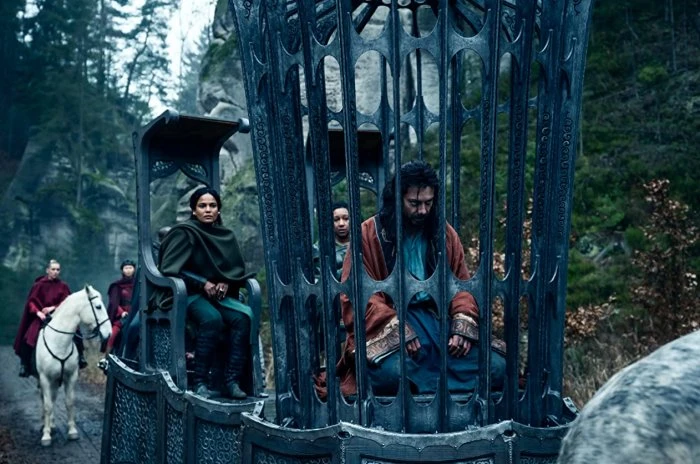
The plot is straight out of the Joseph Campbell playbook. We get a lot of the sequences familiar to genre fans - the hurried departure, the chase, a City of the Dead, the parting of the heroes, temptations and ambushes, unexpected help, reunion of the heroes, the wonders of a Great City, politicking among supposed allies, and an epic final battle. The pace picks up as it goes on and it begins to trot along nicely, in spite of some odd editing decisions and a lot of exposition.
Jordan's cycle runs to fourteen thick novels, filled by over two thousand named characters and four million words. He had a particular interest in developing an elaborate mythology, and even a sort of theology, for his carefully constructed world. Most fans of the books seem to have accepted that a television adaptation would have to cut this drastically. Even so, a lot of time is still spent explaining needless details of things that do not actually exist while some important plot points are passed over very casually or in complete silence.
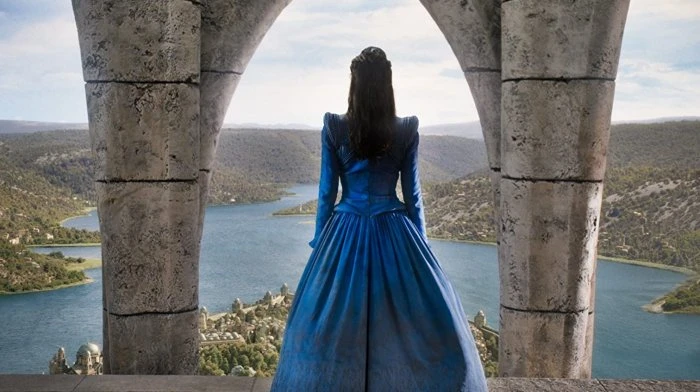
The production does, however, score very highly in terms of its visual aesthetics. The combination of clever location work with CGI is symbolic of the perfect synthesis of reality and magic it produces. At its best it merits comparison with Jackson's Lord of the Rings trilogy, which it references frequently and quite deliberately. This is not a criticism. Indeed, other fantasy projects would do well to emulate The Wheel of Time in its use of light and colour. The landscapes of Croatia, Slovenia, and the Czech Republic are gorgeous, and there is a welcome cameo appearance by the Alcazar of Segovia, which looks as if it belongs in a fairy tale but is honestly quite real.
It was a nice touch that the City of the Dead, Shador Logoth, looks a lot like a less vibrant version of Tar Valon, the Great City which is the initial objective of our heroes' journey. There is a message there somewhere.
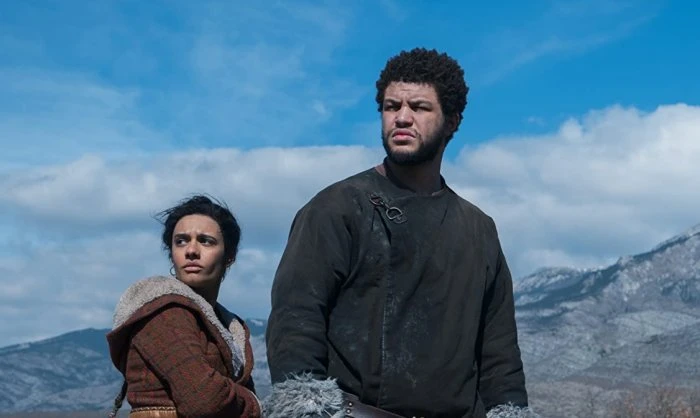
Comparing The Wheel of Time with its Netflix rival, The Witcher, Amazon's contender wins on photography and special effects, but loses on characterisation. In terms of story, the first season of The Wheel of Time has a tight, cohesive plot, which is more than be said about the first of The Witcher. The big question is where they both go from here. If the writers of The Wheel of Time are just going to wander around Jordan's world, exploring its detail, it is not going to attract audiences that justify its budget. The key to a good story is writing good characters: if you do that, you can do almost anything with them and people will care. Moiraine is interesting, but none of the other principals in The Wheel of Time is as compelling as Geralt, Yennefer, and Ciri in The Witcher. Of course, the real test for both shows will come when they face Amazon's other big contender, their Tolkien prequel. Even if this is based on little more than his appendices and desk jottings, minor Tolkien is still Tolkien. The old Professor understood story construction, which is why Jordan followed him so closely. The scriptwriters of The Wheel of Time and its rivals could learn a lot by going back to him.
Seen this show? How do you rate it?
Seen this show? How do you rate it?
Published on January 10th, 2022. Written by John Winterson Richards for Television Heaven.


